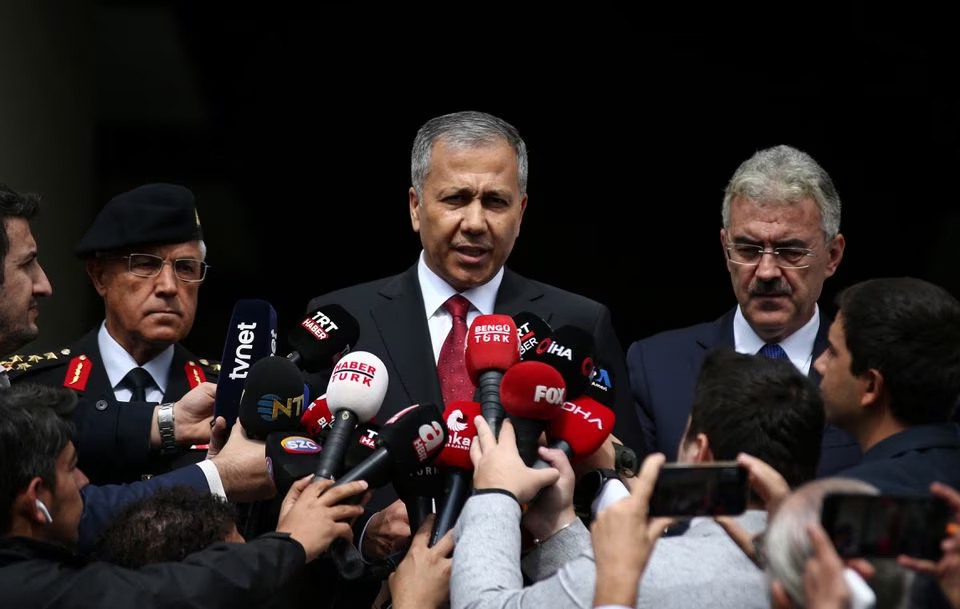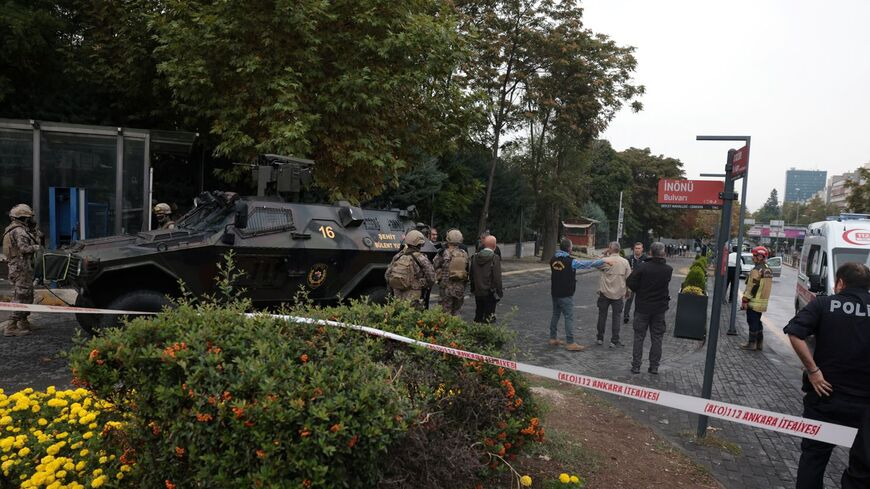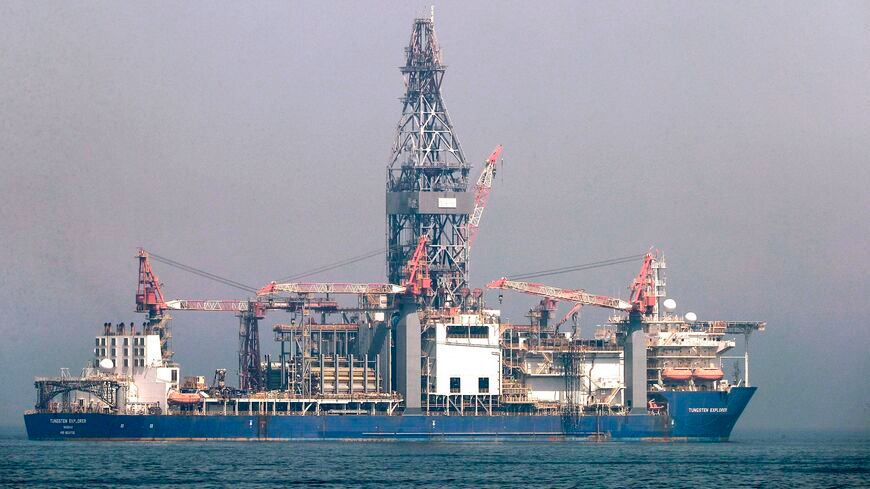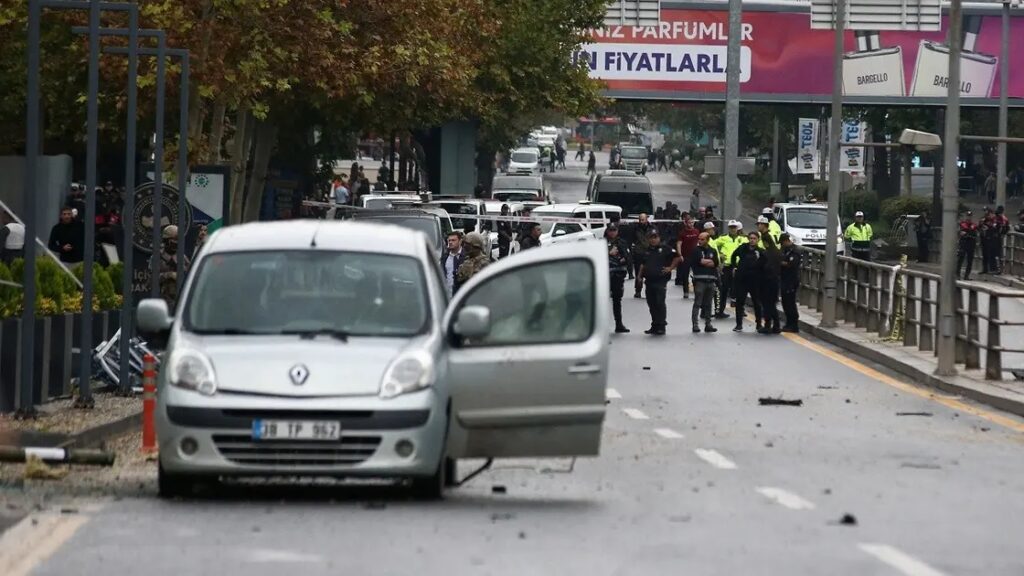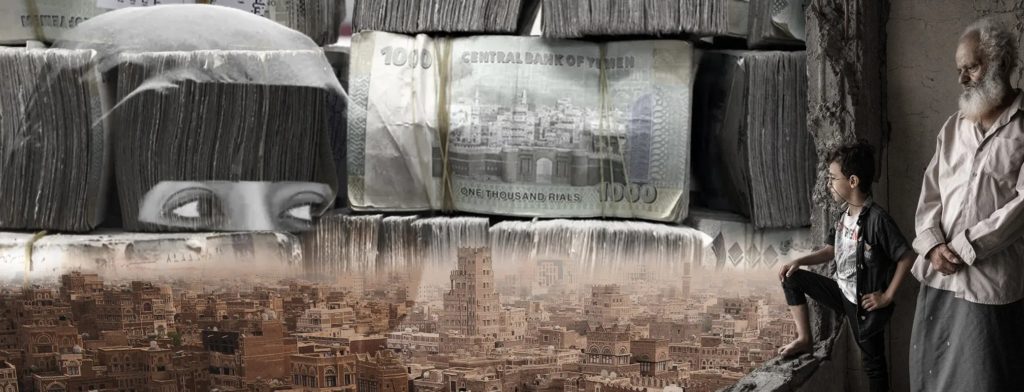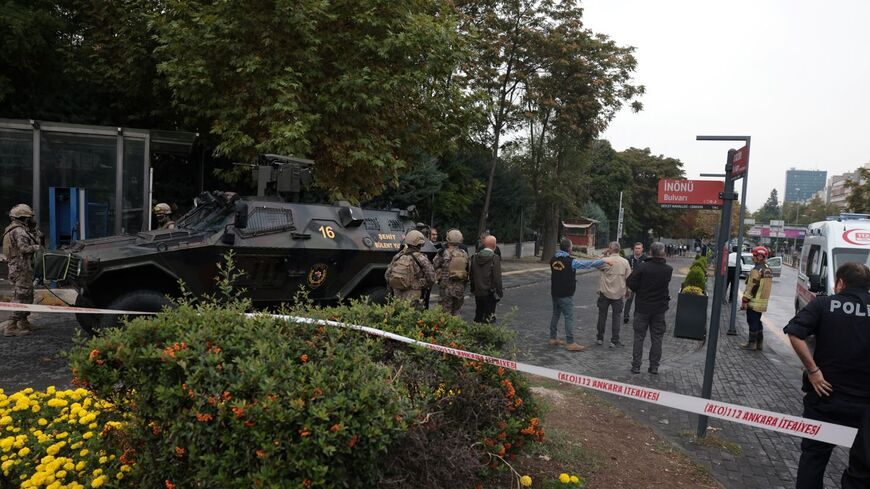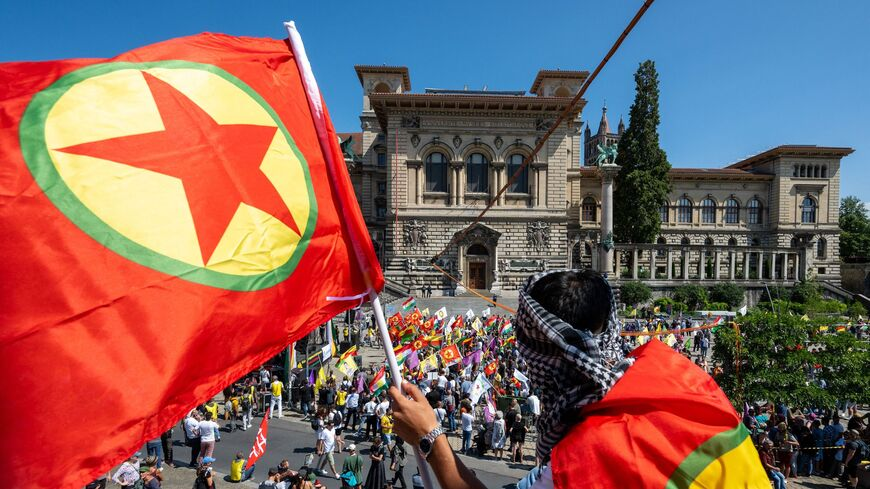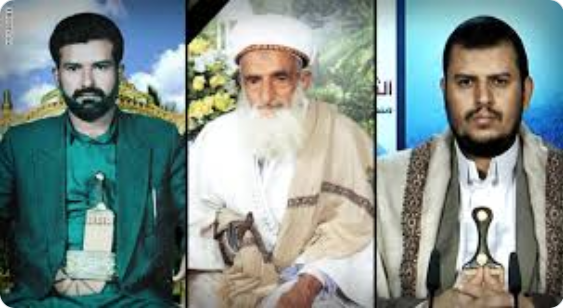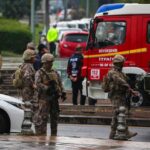
Turkey’s crackdown on the Kurdistan Workers Party (PKK) following a suicide attack in Ankara has left the US in a difficult position.
While Washington has condemned the attack and voiced support for Turkey’s right to defend itself, mass arrests and air strikes in Kurdish areas of Iraq have led to the US needing to walk a fine line.
The US, along with Turkey and the EU, regard the PKK as a terrorist entity. But Turkey’s counter-terrorism measures have included rounding up nearly 1,000 people in raids across the country as well as striking targets inside Iraq.
In the past, US President Joe Biden’s administration has expressed concern over human rights breaches in Turkey, including in a 2022 country report in which the State Department claimed there were “credible reports” of killings, suspicious deaths of people in police custody, arbitrary arrests and the “continued detention of tens of thousands of persons”, among other issues.
On Sunday, Turkey launched attacks on 20 targets in northern Iraq – a move that drew condemnation from Baghdad.
“These violations are rejected by the Iraqi people, the [Kurdistan] region and all of Iraq’s inhabitants,” Iraq’s President Abdul Latif Rashid said in an interview with Saudi-owned television network Al Hadath.
Washington, which remains close to Baghdad, has been placed in a delicate position, as relations with Nato ally Turkey have become frayed in recent years.
“We recognise the legitimate security threat the PKK poses to Turkey and we urge Turkey to pursue joint counter-terrorism co-operation with Iraq in a way that supports and respects Iraqi sovereignty,” US State Department spokesman Matthew Miller told reporters on Monday.
Though the US views the PKK as a terrorist organisation, it is allied with the Syrian Democratic Forces, which is primarily made up members of the Kurdish-led People’s Defence Units.
The US sees the SDF as critical in the fight against the remnants of ISIS in the region.
It is a partnership that has angered and frustrated Turkey for years.
“This policy of the United States supporting the PKK’s Syrian franchise has been one of the top two or three irritants in US-Turkish relations since that policy was adopted in 2014,” Richard Outzen, a non-resident senior fellow at the Atlantic Council and retired colonel in the US military, told The National.
Mr Outzen believes that at some point, US support for the SDF will have to end.
“The returns have dropped and the costs remain exceptionally high,” Mr Outzen said.
“The contradiction within this policy is that we would somehow expect our Turkish Nato ally to provide broad geopolitical and security co-operation elsewhere in Syria, Iraq and in Ukraine and in broader strategic terms at the same time that we are arming, equipping and training part of their number one security threat could not be sustained forever.”
He called Washington’s support of the SDF a “flawed policy,” but acknowledged the US had invested too much to simply abandon it.
Meanwhile, Ankara has steadily reduced the PKK’s abilities in Turkey and elsewhere.
“With a steady drumbeat, they are really attriting large numbers of PKK leadership, even junior leadership,” Mr Outzen said.
When asked about whether Turkey’s targeting of the PKK makes long-term support for the SDF untenable, Pentagon spokeswoman Sabrina Singh said only that the US military’s Central Command remains focused on defeating ISIS.
“Any actions that further destabilise our mission, which is the enduring defeat of ISIS, don’t serve that mission,” she said.
